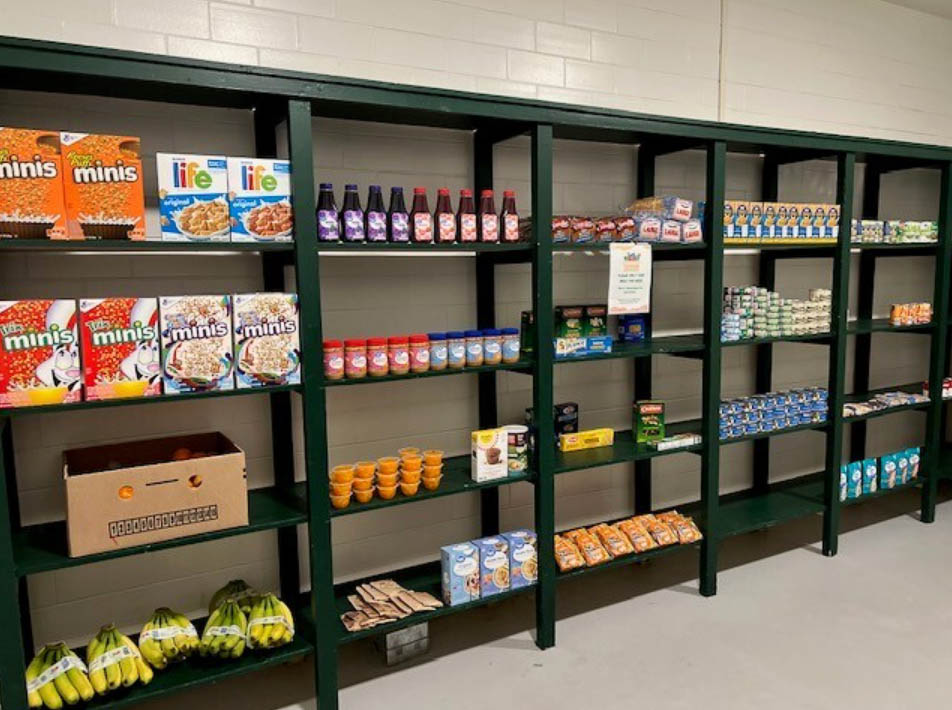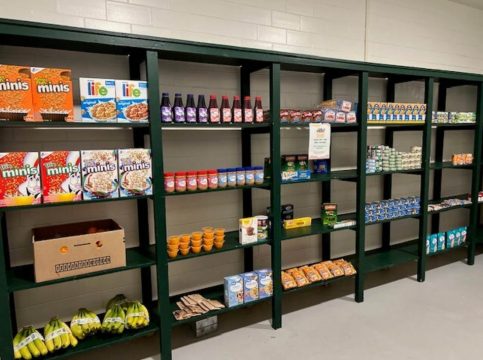Beginning on Friday, Sept. 8, the Lawrence Student Food Pantry began to operate under a weekly request system requiring students to fill out an online or in-person form, causing concern over stigmatization and inaccessibility among involved students.
Lissette Cruz-Jiménez, Director of the Diversity and Intercultural Center and Jessica Quintaña, Assistant Director of the Diversity and Intercultural Center, describe that instead of swiping key cards to access the Pantry, students may now access it once a week by completing an online request form for a bag pick-up or by completing a form in person in the Diversity and Intercultural Center (D&IC) during walk-in hours from 9 a.m. to 5 p.m.
Each form allows students to request specific amenities once per week and includes a requirement of written acknowledgments of food insecurity and that the pantry should only be used by those who need it.
Senior LJ Jensen stated the issue with this is that it requires students to express not only what they need but why they need it, which creates a possibility of people needing food assistance and not asking for or receiving physical help from the University.
“It can be shameful to ask for help sometimes, unfortunately,” said Jensen. “I wish it was different, but I think that if someone is food insecure, they’re never going to be able to ask for the additional help.”
The change also removes the former anonymity of those seeking food and amenities, creating a necessary written record of who and why in order to access it, and putting Lawrence students in an uncomfortable position to receive useful amenities, as if they must prove their need.
“I feel uncomfortable using the food pantry now since it is not anonymous, I feel like I am not supposed to [use it] and it is more important for other people,” said junior Danielle Bruce. “It’s already affected me, and others I know who are food insecure feel like they might be judged for filling out the form and might not be allowed access.”
The Food Pantry reports to the department of Inclusion, Diversity, Equity, Antiracism, and Support Services (IDEAS) which is overseen by its Vice President Kenny Yarborough, who was unable to meet due to scheduling conflicts.
Jensen believes that the change was caused by a lack of proper funding for essential services such as the pantry, and thus an inability for the pantry to provide unconditional support to students in need.
There has always been a limited supply of resources in the pantry accessible to anyone via keycard swipe, said Bruce, but they hope that the pantry can be expanded to the point of students’ anonymous access without the pantry running out of supplies. In the meantime, the pantry will operate under the new system, which according to Cruz-Jiménez and Quintaña is intended to provide the best support possible, bearing in mind that the pantry hopes to be accessible and equitable to all students.
“I know Jessica, who runs it, is an incredible person and I know they are trying to run this as well as they can,” said Jensen. “I understand this is a compromise from the school [in order to keep it funded], unfortunately it’s a disappointing compromise… I hope that in the future it goes back to what it was, but realistically if the school never funds it properly then it can’t. So, I hope in the future the school will properly fund it, year after year annual funding.”
The pantry has been aided through the generous contributions of the community and local businesses. Donations to help the pantry in its continued support of students are always welcome, Cruz-Jiménez and Quintaña added.


